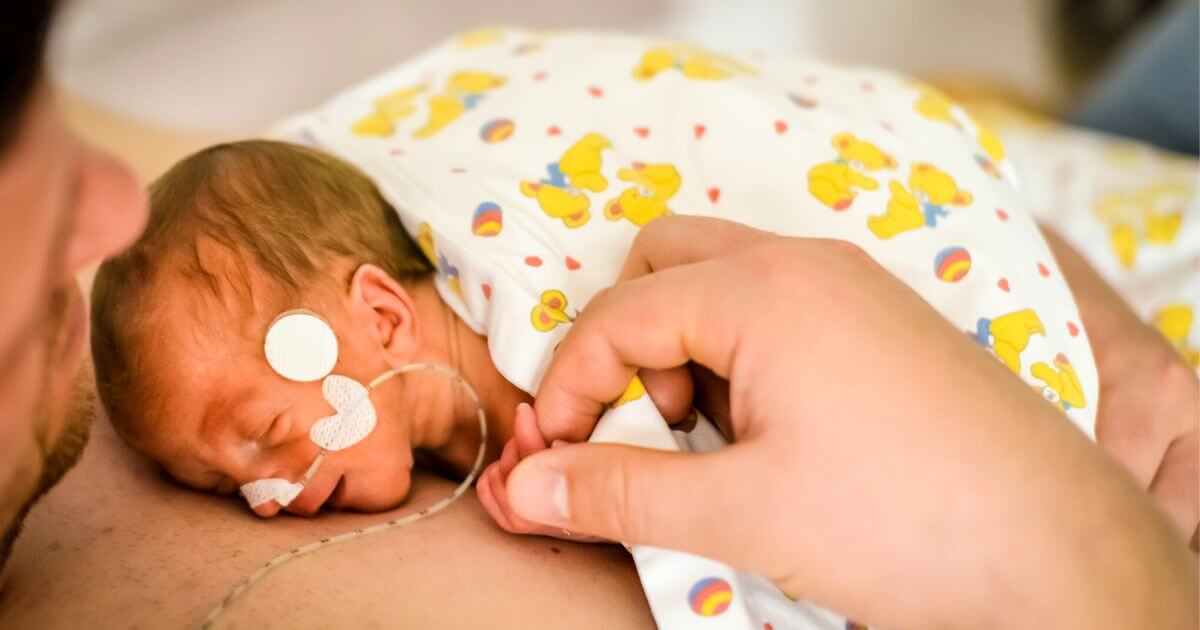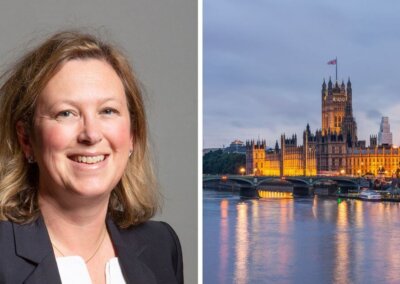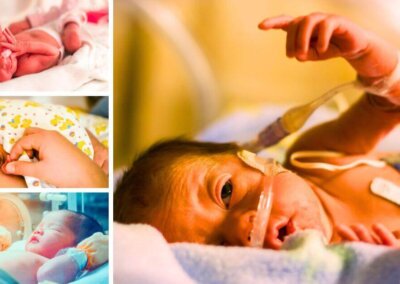155 NHS neonatal intensive care units (NICUs) in England support 50,000 babies every year. One in eight of the babies admitted to these units are born prematurely, before 37 weeks. The youngest of these can be born at just 22 weeks gestation, and their chances of survival have significantly improved in recent years.
Babies born extremely premature (before 27 weeks) need constant care to ensure their survival. Many of these babies are unable to breathe without a ventilator because their lungs cannot yet operate properly.
Care for such babies remains very complicated. One paediatrician explains that “With these babies born at 250g or 300g, their skin is transparent. It’s wafer-thin … You can see their internal organs. You touch them and they bleed … any intervention you do is traumatic to the patient and by extension to the member of staff doing it”.
Age for intervention lowered to 22 weeks gestation
Until 2019, babies who were born before 23 weeks gestation were not considered viable. As such, doctors would not intervene to provide care for such babies.
However, in 2019, the British Association of Perinatal Medicine released a new framework for babies born before 27 weeks gestation. It is now recommended that doctors can intervene and provide treatment from 22 weeks, if deemed appropriate.
Dr Helen Mactier, President of the British Association of Perinatal Medicine and Consultant Neonatologist at the Princess Royal Maternity in Glasgow, said the updated guidance “aligns recommended clinical practice with the most up-to-date science, ensuring that advice to parents is consultative, consistent and evidence-based”.
“We’ve got better at keeping extremely premature babies alive and we know clinicians are increasingly willing to consider survival-focused care for the most extremely premature babies”.
Around-the-clock care for babies in the NICU
Whilst technology has played a large role in improving survival rates for these tiny babies, the human touch is still needed.
Neena Modi, a professor of neonatal medicine at Imperial College London and consultant at Chelsea and Westminster Hospital said “They need constant attention … With the best equipment in the world, you still need a nurse to provide that constant attention”.
It can also be emotionally taxing for all involved. Many parents have discussed the challenges of having a baby born prematurely and then treated in the NICU. Staff also report the toll that it can take, knowing that sometimes the babies will not survive.
In March last year, baby Isla was born 18 weeks early and given only a 10% chance of survival. 18 months on, she’s thriving at home with her parents.
Showcasing the value of the smallest lives
Right To Life UK spokesperson, Catherine Robinson, said “The tireless work of the nurses and doctors in these neonatal intensive care units showcases the precious value of the lives of babies born prematurely”.
“Some of these babies are even born before the UK time limit for abortion. The fact that babies born as early as 22 weeks are surviving and that medical guidelines reflect this shows that the UK government needs to urgently review the abortion law so that it, too, recognises the value of the smallest lives”.











